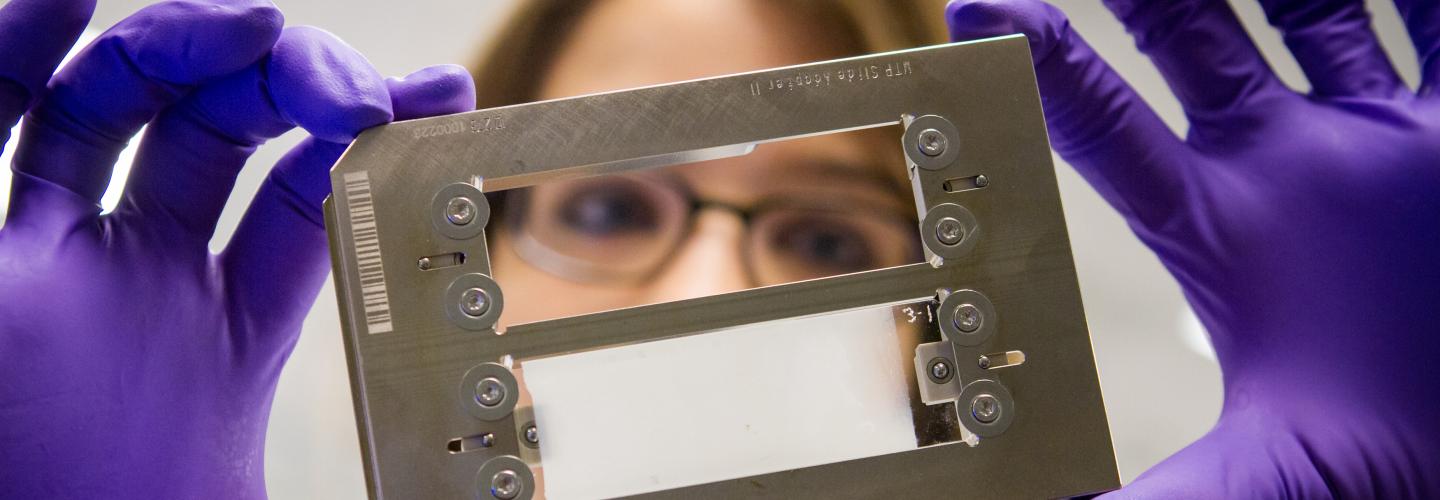Why this programme
In biology, scientists generate massive amounts of data on sequences and profiles of genes, proteins or metabolites, often resulting in large databases and imaging files. As a systems biologist, you will bridge biology and mathematics to extract biologically relevant information to design follow-up experiments.
Programme highlights
Focused on your future career
Acquire the knowledge and practical skills necessary to bridge biology and mathematics by training your problem-solving competences in a research context.
State-of-the-art facilities
Work with the best equipment, such as high-performance computing clusters, and use a variety of available data from large cohort studies, our multi-modal imaging facilities and MRI-scanners.
Classroom collaboration
Work in international teams with your fellow students on systems biology and bioinformatics challenges.
Multidisciplinary programme
You will approach systems biology and bioinformatics from a multidisciplinary as well as an interdisciplinary point of view. You will work collaboratively, seeking common results.
An international community
Learn from and be a part of our ambitious international academic community at the Maastricht Centre for Systems Biology and Bioinformatics (MaCSBio).
To understand biological systems, you must learn to comprehend the key properties of that system:
- the structure of the system
- the dynamics of the system
- the control methods of the system
- the design methods of the system
If you can understand these four key properties, you can make a model with powerful predictive capabilities.
Our master’s programme integrates mathematics and biology, emphasising computational, experimental and modelling tools and methods. After you graduate, you can become a part of multidisciplinary teams of scientists that rely on systems biologists to make sense of their data. You will be prepared for a career in systems biology and ready to explore the secrets of the human body and health.
In this programme, our students explore topics such as:
- Cardiovascular structure, function, metabolism and diseases
- Genetic and epigenetic regulation of gene expression
- Personalised nutrition
- Neural signal analysis in audition and artificial hearing
- Evolutionary game theory
- Mathematical oncology
Dr. Michiel Adriaens eleborates on one of the most important developments in the field of systems biology and bioinformatics.
What our students think
Find out why our student Rita chose the master's Systems Biology and Bioinformatics and what she likes most about the programme in the video.
Meet our students
Our students are happy to answer all your questions about the programme and about (student)life in Maastricht.
Focus on practical training
We want you to be well-prepared for your future career, so our programme largely focuses on experience and experimentation. Our two unique methods of teaching prepare you for a career in academia or industry.
Research-Based Learning (RBL)
- We do more than teach you about existing scientific theories
- You will work on current scientific research problems
- During projects, you conduct your own research in collaboration with other scientists and researchers
- You will learn how to apply your knowledge and make your own discoveries
Problem-Based Learning (PBL)
- Problem-Based Learning prepares you for the real world of scientific work.
- You will collaborate in small tutorial groups of 10-15 students from various backgrounds (mathematics and biology).
- You have fewer lectures and more hands-on training, tackling real-life scientific challenges.
- This active method of learning, supervised by a tutor or lecturer, will improve your life-long learning and professional skills.
Research shows Problem-Based Learning teaches you to:
- fully absorb the subject matter
- collaborate well in teams
- think critically to solve problems
- direct your own learning and work independently
- develop motivation to study and solve challenges
- feel comfortable with public speaking
